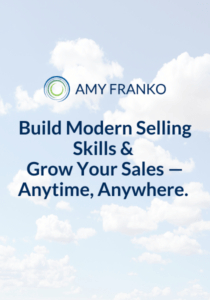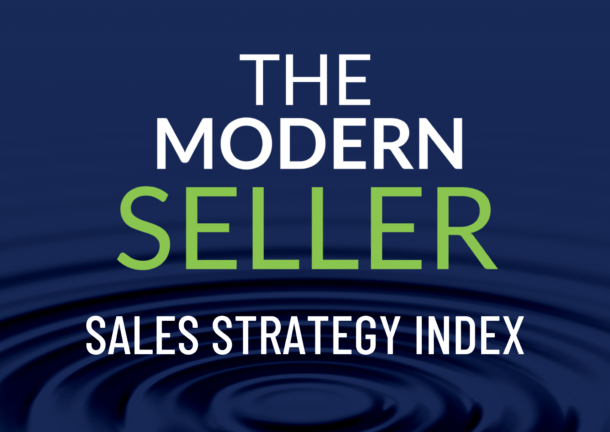This article offers a reflective approach to achieving significant sales goals in 2024, presenting a series of questions for leaders and professionals to guide their strategic thinking.
In my sales strategy and board directorship work, I’m working with leaders going after significant goals – the kind that are game changing for their organization or the community. It has been a busy season for me as well… the past several months have seen new clients and new projects.
That had me thinking: Where will I find time to allow for new ideas? Time to let my mind unwind a bit?
These have been the sentiments for many that I’ve connected with over the past year. Accomplished leaders and professionals running from one thing to the next. Busy, and trying to make sure it’s productive.
This article isn’t a set of strategies, but instead a set of questions that you can use as a guide to unwind your mind and provide clarity as you move into 2024.
***********************************************************
Download my new worksheet: 10 Impactful Questions to Jumpstart Your Sales Year
***********************************************************
Become a Stronger Leader
- Am I leading myself first? My #1 post of all time is about the power of self-leadership. You can read it here for my definition and other strategies to develop yours.
- What goals have the most significance to me in the next 12-24 months? This could be a fresh brainstorm list, or a revisit of your past lists. I’m always keeping lists in different journals and it’s an interesting exercise to see what still seems significant, or goals that I’ve accomplished from those lists.
- What would my future self say about these accomplishments and their impact? As you consider your goals, look with an eye to the future. I recently had a conversation with a friend considering a major change to her business offerings. I asked her how long she would be willing to put in sustained effort because it was likely a 2–4-year endeavor. That changed her thinking on how she wanted to pursue it.
- Do I both the desire and the commitment to succeed? I can help your sales teams understand their levels of both desire and commitment. They can be measured and they’re very different attributes. Desire is the “want” to be successful. Commitment is the “consistency” of the right actions to get you there. For example, you can desire to run the marathon, but will you commit to the consistent actions it takes to get there, no matter what? If you have desire, but lack commitment, significant goals are difficult to accomplish.
- What am I willing to eliminate in 2024? I’ve heard this described by others as the art of subtraction. For every “yes” there is a “no” we must make somewhere else. It’s in the intention of our “yes” and “no” choices that make all the difference. When you have clarity on your most important goals, it can become a filter by which you make your decisions. If it’s not in the service of your most important goals, that request or opportunity becomes a “no,” so that you can say “yes” to what serves those goals.
- Who will I ask to hold me accountable? Am I willing to be coached and be vulnerable? This is a big one. In the sales assessment work I do with teams, they’re measured on how accountable and how coachable they are (yes, it can be measured as well as observed). Those two qualities and the actions you put in place will determine how successful you are in reaching your goals.
- How will I celebrate milestone successes? How will I maintain my desire and commitment when things get difficult? Significant goals take time. They’re more of a marathon than a sprint. They have peaks and valleys; finding ways to celebrate your progress helps to weather the challenges. When I wrote The Modern Seller, I had hit some of those valleys where I temporarily paused my writing. My accountability partner helped me to work through those valleys and find my way back to making progress.
- What’s one way I can pay it forward? I’ve always been a big believer that leadership titles don’t matter much. You can decide to lead and pay it forward right from where you are today. This question can provide awareness on making a difference for someone else.
Become a Stronger Sales Professional or Sales Leader
- What will make me a better sales professional or leader? Take the time to think through and with the help of your leader or a mentor, decide on the one (no more than two) items that you’ll commit to making progress on that will make you better next year.
- What’s a gamechanger for me as it relates to my sales goals? I recently held a sales skill program with a client and one of the participants had moment where she realized she could be requesting introductions. It just wasn’t in her awareness, and in that moment she decided it could be a gamechanger for her. What’s your gamechanger? Maybe it’s increasing your referrals, strategizing differently on a key account, implementing a new productivity tool, or increasing your fees.
- What sales skill am I willing to be vulnerable in as I work to get better? High performers often hate the idea of being vulnerable. We all have a weak sales skill. It’s why I use skill data when I work with teams, to better identify the skill gaps. You might be fantastic at prospecting, but your qualifying skills need work. Or you might need help with improving how you deliver proposals. It’s a sign of strength to risk a bit of vulnerability to improve; in the end it will make you more successful and improve your compensation.
- How can I improve my sales mindset? Up until now there have been four pillars in my strategic selling program – intelligence, relationships, compelling proposals, and commitments. I recently added a fifth pillar, focused on mindset. Mindset affects your sales beliefs, behaviors, and habits. Those in turn, affect your results. Improve your mindset, improve your results.
Final Thoughts
Recognize the value of strategic speed with your significant goals. Strategic speed is the balance between short-term and long-term results. Focus only on the long-term and it’s easy to lose momentum. Focus only on the short-term, and it’s easy to veer off course. With anything significant, whether it’s a big client you’re focused on, or training for a marathon, strategic speed matters. Break down that big goal in its smaller milestones and activities and check in at specific points to gauge your success and determine any pivots.
Focus on how you invest your time, energy, motivation, and discipline. There’s a saying that we overestimate what we can accomplish in a year and underestimate what we can accomplish in five years. For me it comes down to how me manage and prioritize these resources. Giving these resources over to one or two significant goals in a year makes us more productive and happier in the short-term and it also helps us to create more significance in the long term.
Editor’s note: I first published this piece in 2022 and it has been one of my most popular posts.
Help Your Sales Teams Reach Their Goals in 2024
Don’t let your competition get an advantage. We can help. If you want to know how to improve your sales coaching, or you’d like to bring in an outside perspective, let’s talk. Contact me to schedule time for a discovery conversation.


 Our Strategic Selling signature sales training program is now available online. This online sales learning program is ideal for professional services and B2B sales. Get started with 2 free lessons.
Our Strategic Selling signature sales training program is now available online. This online sales learning program is ideal for professional services and B2B sales. Get started with 2 free lessons.